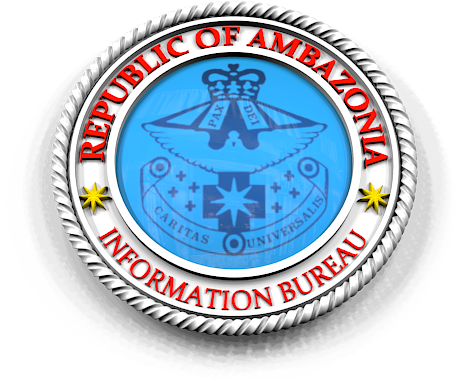Agriculture
The agricultural sector is extremely important to the economic development of the Republic of Ambazonia and shall be given the attention which it is due. However it is fully recognized that the Republic of Ambazonia does not really have farmlands that are ideally suited for large scale commercial agriculture because of its unusual topography which is due to the fact that a substantial part of the country is part of the Adamawa Mountain Range which stretches under the sea from the Atlantic Ocean into Taraba State in Nigeria. Consequently, while the mountainsides and the valleys are intensively cultivated by farmers for subsistence, the topography of the land is not suitable for large scale commercial food production.
On the other hand, vast plantations have been developed at the foot of Mount Fako dating back to the short period of German colonial presence in Kamerun which was brought to an end in 1918. Although the Germans continued to operate their plantations after WWI, the end of WWII led to the German plantations being placed under the Custodian of Enemy Properties by the British Government. Thereafter, legislation was proposed in Lagos Nigeria, creating the CDC as a corporate body under which all German plantations were placed to be managed for the exclusive benefit of the people of Ambazonia.
The CDC
The CDC has over the years expaned its operations to cover more land and to include five principal crops:
Oil Palm
Rubber
Coconut Palm
Banana
Tea
The CDC became the largest employer in The Cameroons (British Cameroons & French Cameroun) with a workforce of 15,000 employess.
The Tea Estate in Ndu and Tole have been sold by the colonial government of Cameroun under controversial arrangements that have been opposed by the people of Ambazonia. However, attempts to sell off the rest of the plantations of the CDC have been opposed by the Bakweri Land Claims Committee (BLCC) which has challenged the land arrangements under which the Bakweri lands were expropriated by the Germans to establish those plantations. The implication is that until such a time that the matter of the land arrangements is satisfactorily settled, the CDC as a corporate entity cannot be privatized.
The Government of Ambazonia plans to hold discussions with all stakeholders in the CDC in order to determine the conditions under which the CDC can be privatized while protecting the interests of the original owners of the land. For privatization purposes, the CDC shall be broken into various product lines and sold separately, except for the oil palm industry which shall be further sold as two separate companies to include the plantations built around the Ideneau and Mondoni Oil Mills;
The Government of Ambazonia also intend to review the conditions under which the Ndu Tea Estate and the Tole Tea Estate were sold and shall take any corrective action is deemed necessary.
Pamol Limited
Similarly, on the windward side of Mount Fako, an Oil Palm Plantation was established by Unilever in and around Ekondo Titi. The Estates of Pamol were abandoned by Unilever as a result of the failure and or refusal of the colonial government of Cameroun to provide road infrastructure from Kumba to Ekondo Titi.
This request was made specifically by the management of Unilever in order to provide a level playing field which will enable Pamol to compete with other producers such as the CDC, Firm Suisse and Socapalm which all benefit from infrastructure that has been financed by the Colonial Government of Cameroun. This refusal by the colonial government of Cameroun to either construct a motorable road and or construct a high tension power link from Kumba to the Milling Plant in Ekondo Titi led Unilever to abandoned the palm estate.
The Government of Ambazonia intends to provide both road infrastructure as well as electricity from Kumba to Ekondo Titi and to Mundemba as part of the overall strategy of bringing development to the West Coast. The construction of the Kumba/Ekondo Titi/Mundemba/Bakassi and and he Victoria/Victoria/Idenau/Ekondo Titi rods which are priority ECOWAS link roads will benefit the oil palm development on the West Coast. This will enable the reactivation of the Pamol Estates that have been moribund as a result of the lack of basic infrastructure.
The Government of Ambazonia also intends to parcel off more land in the West Coast in 50 Sq Km (5000 Ha) lots to investors who are interested in developing the oil palm industry in the Republic of Ambazonia.
Akwaya Oil Palm Initiative
A third area where an oil palm program shall be launch is in Akwaya. There is vast land which has remained virtually untouched as a result of the absence of access infrastructure. By providing access roads and electricity through Mamfe, Widikum and Wum, the area of Akwaya shall be transformed into a major palm oil producing area of the Republic of Ambazonia. Incentives including concessions for timber exploitation shall be given to operators willing to invest in the area and to build the roads so that it should become a major timber and palm oil producing area in the Republic of Ambazonia.
The area in question covers approximately 5000 Sq Km (500,000 Ha) of land. This area of the Republic of Ambazonia has never been served by any type of road infrastructure; not to mention electricity or telephone lines. The area has been cut off from Mamfe Town by the Manyu River and the only way to get across from Mamfe to Mamfe Overside has been through a wooden bridge, more like a wooden walkway, which the Germans built around the turn of the 20th century. The population density has remained sparse and schools, if any, are poorly equipped.
The topography and the rainfall conditions make this area ideally suitable for the cultivation of oil palms. The other attractive feature of the area is that its tropical hardwood reserves are still intact because, so far, there are no roads enabling anyone to harvest and evacuate the tropical hardwoods.
The most prominent villages of the area are Takamanda and Ekokisam. The region is drained by tributaries of the Cross River including the Manyu River which passes through Mamfe Town itself. A substantial part of the population of the area has simply moved to Nigeria, as they have over the years seen no hope of any development on their land under the colonial occupation from Cameroun.
The Government of Ambazonia intends to transform the economy of Akwaya by allocating the land parcel of 5000 hectares to investors who are willing to invest in the Oil Palm Industry in the Akwaya Local Government Area. Each investor shall be given the privilege to exploit the timber in their allocated concession and shall in return be required to:
Develop Access Roads
Clear the Land and plant oil palms
Provide Housing for their Workers
Construct a Palm Oil Mill
The Government of Ambazonia shall for its part develops the oil palm nurseries and provide electricity. Akwaya is the last frontier in the Republic of Ambazonia and the size of the virgin land holds great economic potential.
The overall objective of the Palm Oil Plan is to put 1,500,000 hectares of land in the Republic of Ambazonia under oil palm cultivation. Such a plan should make it possible for Ambazonia to produce 500,000 – 750,000 metric tons of crude palm oil per year. This will make Ambazonia the largest producer of crude palm oil in Africa.
Akwaya Earth Roads & Bridges Program
The implementation of the Akwaya Oil Palm Initiative shall require that the Government of Ambazonia should play an important role in opening up the region. It is well known that the entire population of Akwaya has ben lost to the Federal Republic of Nigeria because the indigenes of the region have not been connected to the rest of the territory of Ambazonia by access roads. Consequently, most of the people of the area have moved across and settled in Cross River State in Nigeria.
However, given the considerable potential of Akwaya in terms of its forestry reserves and in view of the intention of the Government of Ambazonia to develop the Oil Palm Industry, there shall be a priority program by which the region shall be provided with earth roads in conjunction with the construction of solid bridges across the rivers so that vehicular traffic can move into the area. At the same time the indigenes of Akwaya shall be encouraged to return to their ancestral homes to become part of the reconstruction of their lives under the Akwaya Local Government Area.
Forestry
During the last few years the colonial government of Cameroun has allowed the most wasteful exploitation of forest reserves by various operators. The rate of forest exploitation has raised an alarm everywhere especially amongst environmental groups. Meanwhile the Camerounese public has been concerned by the fact that log carriers have played a very large role in destroying the road network and rendering the roads impassable. It has been well established that the few kilometers of roads that were constructed in Ambazonia by the colonial government Cameroun have been destroyed by logging vehicles.
The Government of Ambazonia shall grant logging licenses to logging companies with stringent restrictions attached to them such as the following:
Logging companies may not transport logs for a distance of more than 20 km from the logging point;
All logs shall be processed in local sawmills;
The export of logs shall be prohibited;
Logging vehicles shall be prohibited from being driven on public roads fully loaded;
Only vehicles transporting sawn wood, plywood and other products of sawmills shall be allowed to use public roads.
The Government of Ambazonia shall introduce building regulations requiring the increased use of wood in building and construction so as to increase domestic demand for wood products and reduce expenditure on cement and other construction materials. In the capital city of Buea, the Government of Ambazonia shall grant licenses for the construction of low cost housing for civil servants entirely out of wood but built to specifications which will ensure that they are fitted with all the modern amenities.


